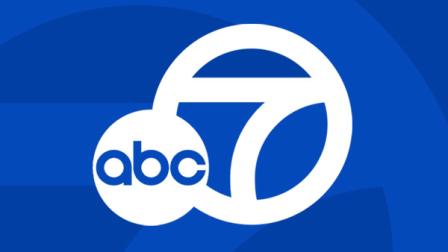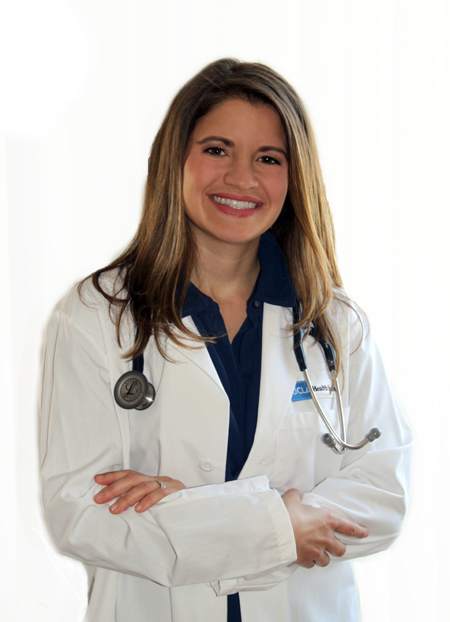Posts Tagged ‘Pediatrics’

A 2012 study showed that obesity is the most prevalent nutritional disorder among children and adolescents in the United States. Among children ages 2-19, about 1 in 3 are overweight and 1 in 6 are obese. For its 14th season weight loss reality show “The Biggest Loser” is targeting a new demographic: overweight teenagers.
My client, Natalie Digate Muth, MD, MPH, RD – a formerly obese child, a mother of a once-picky eater and a pediatrician is acutely aware of the epidemics of obesity and inactivity in our children. A registered dietician and widely recognized for her expertise in childhood obesity, nutrition, and fitness, Dr. Muth is the author of Eat Your Vegetables! and Other Mistakes Parents Make: Redefining How to Raise Healthy Eaters (April 2012).
Dr. Muth applauds “The Biggest Loser” for drawing attention to the childhood obesity epidemic and making significant changes to the show from the adult version to help avoid exploitation and unintended harm to the children. However, Dr. Muth says “this intervention is unlikely to contribute to meaningful weight management and lifestyle change for these teens in the long-term because arguably the most important factor in a child’s weight management success is mostly absent — the Parents! The parents have played a major role in the child’s onset of obesity and the parents are also the solution. The family is a crucial component that is mostly absent from “The Biggest Loser Childhood Edition,” at least what is portrayed so far. Plus, the parents are the adults who are supposed to be looking out for their kids — if they want to take the risk of letting their kid sink or swim in the spotlight of the American public, then they should be right out there with them. It really should be Family Edition.” Jillian Michaels said, “The focus of the teens’ transformation would be health — not weight or clothing size.” Dr. Muth believes this “healthy approach” starts with the parents.
Recently, Dr. Muth appeared on Yahoo! Shines show Away We Grow to talk about the parents role in combatting childhood obesity. Here is the clip.

My client, Dr. Nina Shapiro, Director of Pediatric Otolaryngology and an Associate Professor at the David Geffen School of Medicine at UCLA has her say about parents choosing or not choosing to vaccinate their kids in a recent blog. Dr. Shapiro is the author of Take A Deep Breath: Clear the Air for the Health of Your Child.
“Nut-free”, “Peanut-free”, and the latest and greatest: “Nut sensitive”. The rage in preschools and elementary schools across the country is to protect our nut-challenged children from nut exposure, even if it means not exposing them to nuts in the same building or playground, to minimize their risk of life-threatening allergic reactions. Allergic concerns have expanded beyond nuts, to gluten and dairy, to the degree that some schools now prohibit ‘powdered cheese products’, to protect children who are especially dairy sensitive. Some schools are not ‘nut-‘ or ‘dairy’-free, but are merely ‘nut’ or ‘dairy’-sensitive. I hope that this means that they take special precautions, beyond just discussing the inner feelings and emotions of those ‘sensitive’ to certain foods.
Please don’t take any of this as sarcasm. I am fully aware that food allergies are bona fide, and when they occur to the point of danger, kids can die, or nearly die, from a severe food reaction. An elementary school girl recently died of a previously undocumented allergic reaction recently, while at school. So an institution’s decision to either ban or, well, ‘sensitize’, potential food allergens, for the greater good, becomes a public health issue, even on the small scale of a school’s microcosm. This is a good thing. By not sending your child to school with their favorite PBJ or cheese puff, you are protecting others. Not necessarily your nut-insensitive child, who happily gobbles powdery cheese products and peanut butter cups in the comfort of your BPA-free hybrid vehicle, but others. Your child’s sacrifice for the greater good is worth it; seeing a small friend go into anaphylactic shock can scar a tyke for life, not to mention the allergic child himself. And this protection of others is important. Equally important is teachers knowing and being re-certified in CPR (which, by the way, might have saved that elementary school girl, had it been initiated before paramedics arrived). Maybe even as important as getting immunized.
Is there a lunch table for the vaccine-sensitive? We promise not to serve nuts. I just wonder if schools would consider instituting ‘vaccine-free’ zones. You know, for the greater good? Just as we are protective of the nut-challenged from life-threatening reactions, what about protecting children from life-threatening illnesses? Public schools can mandate that all must be immunized, but do allow for exemptions, which are pretty easy to get. Many public schools report immunization rates of less than 50% of their students. Private and parochial schools can strongly encourage immunizations, but they cannot mandate that all must be immunized. Some private schools have immunization rates of less than 20%. Yes, that’s right a parent might pay $25,000 a year to a school where less than one in five of their classmates are immunized against life-threatening illnesses such as measles, polio, bacteria which cause meningitis, or pertussis (the one that causes whooping cough). In order for a school to be considered truly immunized, from a public health (or ‘greater good’) standpoint, that particular school’s immunization rate needs to be 90% or higher. Parents have varied reasons, primarily personal, why they choose not to immunize their children. Some parents are concerned about autism risk, even though all of the studies connecting the rise in autism with immunizations have been debunked. Some are concerned that their child’s body is too small to tolerate a large dose of so many vaccines at once, so they spread out the schedule recommended by the American Academy of Pediatrics (AAP) and the Centers for Disease Control (CDC) to create their own ‘tailor-made’ schedule. Some parents think that the illnesses kids are getting immunized against don’t exist anymore, so why bother getting immunized, since illnesses such as polio, measles, mumps, and tetanus have been eradicated anyway.
But here’s the reality: these diseases do exist, and we’re going to see more of them come back. I read about pertussis, the bacterium that causes whooping cough, when I was in medical school. We would learn about this horrible respiratory disease and how it afflicted and took the lives of so many of those poor shlubs from the 1930’s, who hadn’t figure out prevention yet. We would read about them as if they were some primitive Neanderthal tribe, barely able to put two sticks together to make fire. Occasionally a crusty old professor would tell tales of the ‘days of whooping cough’. Ho hum. Well, it’s back. Not so ho-hum anymore. The hundred-day cough, which became an outbreak in California and other states, resulted in many children dying. During the tail end of medical school, I saw H. flu infections, a bacterium that caused severe respiratory illnesses, meningitis, eye infections, and blocked breathing. The miracle of the vaccine for H. flu, which became widely used in 1999, nearly wiped it out. Until now. It’s back, too. Dr. Jonas Salk, the co-creator of the polio vaccine, spoke at my medical school graduation. Polio killed millions, and paralyzed millions more. Thank you, Jonas Salk, and your sidekick Albert Sabin. We haven’t seen polio outbreaks in the U.S. since the 1950’s, when Salk and Sabin’s vaccine began being given widely. Well, we haven’t seen outbreaks yet. We might have to wait until the immunization rates drop some more. But let’s hope not. Polio, whooping cough, meningitis, and measles, to name a few, are still out there – and they could once again be coming to a school near you.

HOW TO GET KIDS TO EAT HEALTHY – ASK DR. NATALIE DIGATE MUTH
It’s back to school and parents want to send their kids to school with healthy lunch choices. Natalie Digate Muth, MD, MPH, RD, a community pediatrician and registered dietician widely recognized for her expertise in childhood obesity, nutrition and fitness was a recent guest on KABC news to talk about how to get kids to eat well — even the pickiest of eaters.
Dr. Muth’s book Eat Your Vegetables! and Other Mistakes Parents Make: Redefining How to Raise Healthy Eaters has lots of great strategies to get kids to eat right and wonderful recipes that can be applied to school lunches..
A spokesperson for the American Council on Exercise (ACE), Dr. Muth informs media outlets throughout the country on pertinent nutrition and fitness issues. She is a sought after pediatric expert by the media. She has appeared on ABC World News Now; is a regular guest on San Diego Living; KABC, KCBS and has been quoted in multiple print and online outlets including The New York Times, Health Magazine, Seattle Times, Denver Post, WebMD, and Slate.

My client, Natalie Digate Muth, MD, MPH, RD, a community pediatrician and registered dietician widely recognized for her expertise in childhood obesity, nutrition and fitness talk to Dr. Anne Abram on BlogTalk radio about how to prevent childhood obesity and how to help your child if he/she suffers from it already.
Dr. Muth’s book Eat Your Vegetables! and Other Mistakes Parents Make: Redefining How to Raise Healthy Eaters was released in April 2012.
A spokesperson for the American Council on Exercise (ACE), Dr. Muth informs media outlets throughout the country on pertinent nutrition and fitness issues. She is a sought after pediatric expert by the media. She has appeared on ABC World News Now; is a regular guest on San Diego Living; and has been quoted in multiple print and online outlets including The New York Times, Health Magazine, Seattle Times, Denver Post, WebMD, and Slate.

Yesterday the Wall Street Journal reported that Facebook wants to allow kids under 13 into their social media club. It seems that because about 7.5 million kids under 13 are already using Facebook, Mark Zuckergerg thinks it is OK to open this Pandora’s box further.
My client, Gwenn O’Keeffe, MD, a pediatrician CEO & Editor In Chief of Pediatrics Now speaks out against this move in her Huffington Post blog.
Author of CyberSafe: Protecting and Empowering Kids in the Digital World of Texting, Gaming, and Social Media (AAP 2010), Dr. Gwenn is one of the most highly sought after pediatric and social media experts today.

Mike Caruthers is the host of the radio show Something You Should Know. My client, Dr. Nina Shapiro was a recent guest on his show – the subject – breathing problems in Children.
If anyone should have the answers to these questions it’s Dr. Shapiro, Director of Pediatric Ear, Nose, and Throat at the Mattel Children’s Hospital UCLA, and Associate Professor of Surgery at the David Geffen School of Medicine at UCLA about her new book, Take a Deep Breath: Clear The Air For The Health Of Your Child (World Scientific, January 2012).
Have a listen here.






